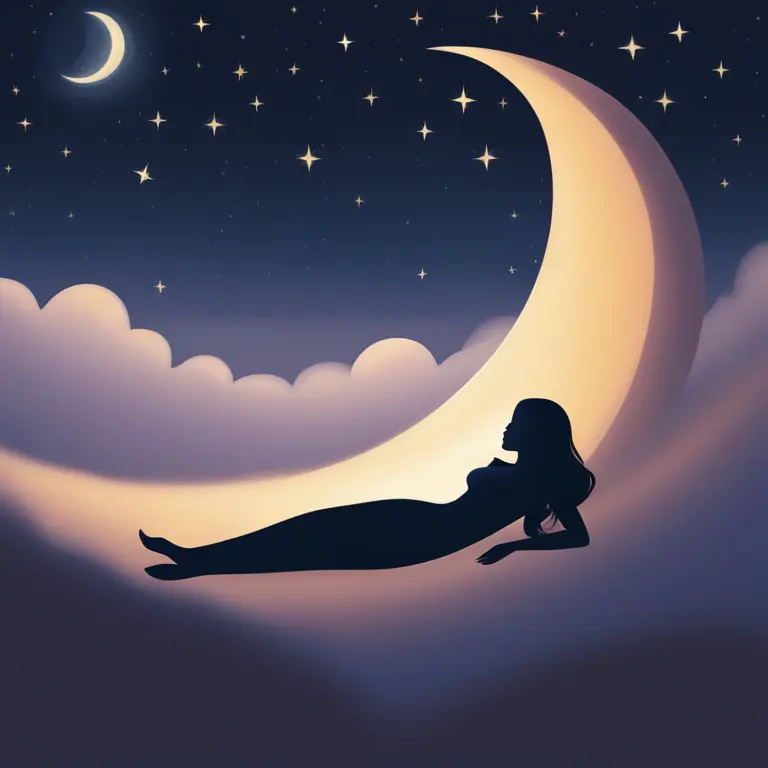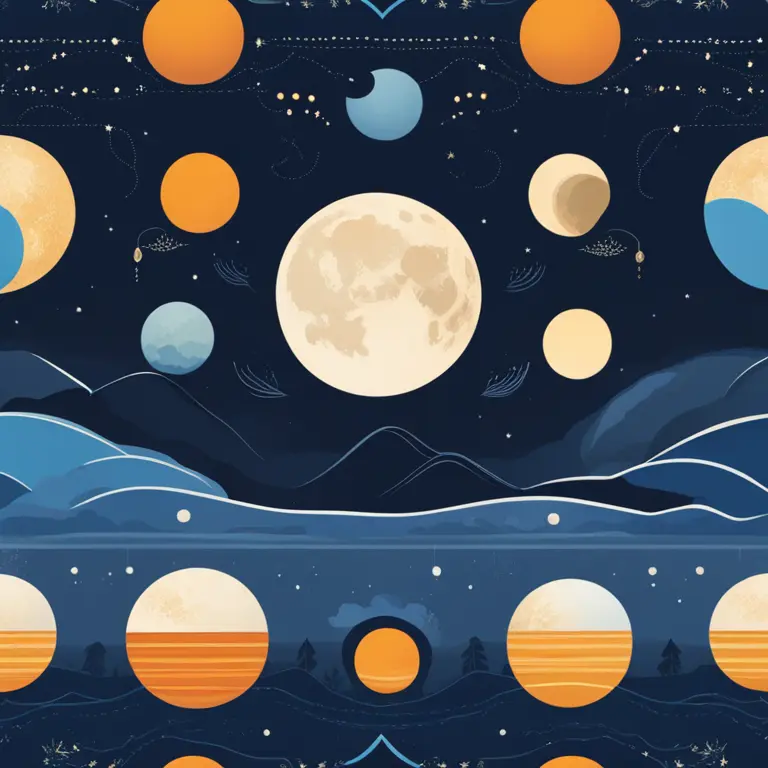
The Moon's Phases and Their Impact on Sleep
Discover how the different phases of the moon may be influencing your sleep pattern and what you can do to ensure a restful night.
article by Priya Deshmukh
Moon Mystique and Sleep Cycles
For centuries, the moon has been thought to hold significant power over the natural world, from ocean tides to human behavior. While scientific evidence on the moon's influence over sleep is not definitive, many people report changes in sleep quality with varying moon phases. This article investigates the moon's potential effects on sleep and how awareness of lunar cycles might improve our nights. Traditionally, a full moon has often been associated with restlessness and insomnia, while a new moon might lead to deeper sleep, according to folklore. Whether these beliefs hold water or not, delving into the lunar lore can be fascinating and might just shine a light on your nocturnal habits.

Full Moon and Insomnia: Is There a Connection?
A full moon's bright light has been suspected to interrupt sleep by signaling to our brains that it's still day, much like the effect of artificial light. People who are sensitive to their environments may find themselves more awake or disturbed during a full moon. Although concrete scientific support is limited, a study in 2024 suggested that during a full moon, individuals might experience longer sleep latency – the time it takes to fall asleep. Adapting our sleep environment to minimize light and disturbance could be especially beneficial during this phase.

Waxing to Waning: The Lunar Cycle's Subtleties
As the moon waxes, or grows fuller, it progresses from a small crescent to a beaming full moon, and then wanes back to a new moon. Each stage may subtly affect our sleep. Waxing phases, rife with growing energy, could correspond with an increase in alertness and reduced melatonin, the sleep hormone. As it wanes, this alertness might wane too, theoretically allowing for a smoother passage to slumber. Paying attention to these cycles and adjusting our evening rituals could be a worthwhile experiment for the sleep-curious among us.

The New Moon's Embrace of Darkness
Conversely, the new moon, or dark moon, offers an ambiance free from lunar light, which can ideally promote a better sleep environment. Astrological forecasts often associate new moons with new beginnings and suggest it as a time for setting intentions or starting fresh routines. If that includes an updated approach to sleep hygiene—like darker rooms, stricter schedules, and winding down rituals—this lunar phase might be the opportune moment to begin.
Biorhythms Tied to Celestial Rhythms?
While astrology provides a spiritual perspective on our connection to celestial bodies, biorhythms science seeks to understand our natural cycles within. The question remains: could our internal clocks be somehow synced to the lunar cycle? Recent horoscopes suggest that our personal energy levels might wax and wane with the moon. Tailoring your sleep practices to align with both your horoscope predictions and the moon's phase could offer unique insights into managing energy and restfulness throughout the month.
Starry-Eyed Sleep Strategies
Whether you choose to follow moon-based sleep strategies or not, one thing is clear: the quality of your sleep profoundly affects your daily life and overall well-being. It may benefit us to occasionally disconnect from our bustling, tech-driven world and look up at the moon. Perhaps by syncing more closely with the natural world's rhythms, we'll find our way to a sleep pattern that's just right for us.
Published: 1/19/2024
Modified: 1/19/2024
More predictions
Come back here soon to learn more about yourself and your future


Moon Phases & How They Impact on Relationships
Discover how the lunar cycle might influence your romantic connections and emotional dynamics.


The Lunar Cycle: Phases of the Moon
Delve into the celestial mechanics behind the moon's phases and how they influence the rhythm of life on Earth.


Your Moon Phase Match: Find Celestial Harmony
Discover which moon phase best aligns with your personality and how this celestial body influences your life journey.